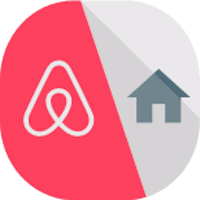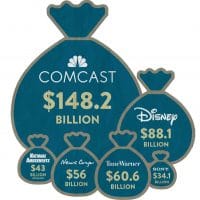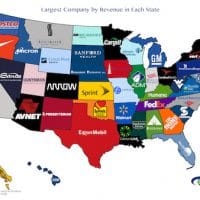-
Airbnb’s A’s and B’s
This is most clearly shown in what is allowed by the powers that run the financial system.
-
From a wealthy socialite to an Israeli Govt censor, Facebook’s new “Free Speech Court” is anything but independent
Freedom of speech on the Internet is all but extinct, and on the eve of the 2020 U.S. elections, a de facto “free speech court” is going to make sure it never comes back. On Facebook at least.
-
On Facebook banning pages associated with anarchism
And the Digital Censorship to Come.
-
Popular viral video firm sues Facebook over Russian propaganda label
The company behind In The Now, Soapbox and Waste-Ed is taking on media giant Facebook, who it claims is falsely labeling it as Russian state-controlled propaganda.
-
Having sucked America dry, tech giants seek new markets beyond reach of U.S. antitrust laws
An aggressive push to consolidate companies in the tech sector, coupled with the world’s ever-increasing dependence on digital platforms and tools, is quickly leading to a crisis of sovereignty.
-
Inauthentic behavior: SouthFront is the latest victim of the Facebook banhammer
The censorship of alternative media is becoming more widespread. The latest victim to fall to Facebook and YouTube’s overzealous banhammer is well-known conflict watchdog website, SouthFront.
-
Who will take on the 21st century tech and media monopolies?
Facebook is under fire for (among other things) its involvement with Cambridge Analytica, a British data analytics firm funded by hedge fund billionaire and major Republican party donor Robert Mercer and formerly led by President Trump’s ex–campaign manager and strategist Steve Bannon. Cambridge Analytica harvested data from over 87 million Facebook profiles (up from Facebook’s original count of 50 million) without the users’ consent, according to a report by the London Observer (3/17/18) sourced to a whistleblower who worked at Cambridge Analytica until 2014.
-
Dimensions of economic power: today’s key corporations
The images below are from a lecture I gave to at SOAS, London University, on 18 October. This was part of a series organised by the SOAS Economics Department, and my lecture covered the forms taken by corporate power today, focusing on Apple, Google/Alphabet, Facebook, Amazon and Alibaba.
-
Who’s working for Facebook?
There are plenty of reasons to be interested in—and, even more, concerned about—Facebook. Many of them are raised in the recent review of Facebook-related books by John Lanchester [ht: db]: the fragmentation of the polity (via the targeting of posts), the dissemination of “fake news” (which played an important role in the 2016 U.S. presidential election), the undermining of other livelihoods (such as journalism and music), the level of surveillance of users (much more than any national government), the violation of anti-monopoly rules (via individualized pricing), and so on.









